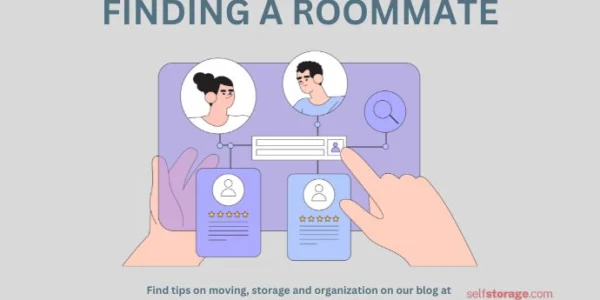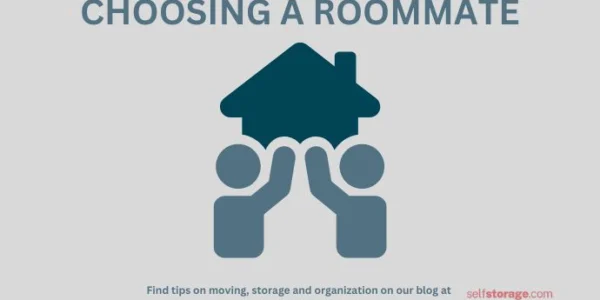Your life is filled with stuff. Whether it was conspicuous consumption, overstocking on good deals, or creating a cache for an impending apocalypse, it’s all come into your life, and now you’re looking to declutter: For a move. For more space. For sanity.
No matter the reason for acquisition, or your decluttering motivation, it’s all the same. It’s time for ‘Operation Sort Stuff,’ employing the all too popular keep, toss, sell, donate piles. The reason we all use the method: it works. Today, we’re going to focus on that final pile. If it’s a handful of boxes exiting the wardrobe, or a couple of mattresses that are getting an upgrade, here’s the what and where of donating your stuff.
- Local Donation Search
- Where to Donate Clothes and Accessories
- Where to Donate Furniture and Mattresses
- Where to Donate Books and Toys
- Where to Donate Electronics
An Important Distinction: Valuable vs Junk
There is a difference between used or secondhand items in good condition, and junk. We all have a tendency to apply value and utility to our stuff that might not actually be there. Approach your sort with objectivity.
Bring a critical eye and consider factors such as condition, usability, and demand. Ask yourself whether the item still serves its purpose effectively, or if it could be creatively repurposed. Go ahead and do a little comparative research to gauge if there’s any market value for collectors, artists, or DIY enthusiasts. But also, recognize when an item truly has no further utility or potential for reuse. This approach will help you find each item’s most suitable fate, whether that’s selling, donating for continued use, or responsible disposal.
The Local Factor
For all donations, think local! Though I’ll name names of the big charitable organizations that accept donations on a national level (through local chapters), my other suggestions will include what types of organizations you should consider getting in touch with.
Here’s the simple formula for an online search:
Search “{type of good} donations in {your city} {your state}”
If you’re looking specifically for what organizations pick up donations, consider using Donation Town or ClothingDonations.org. Operating across the country, Donation Town is a veteran-supporting organization connecting donors with charities who will pick up donations from their home or business for free and distribute it to those in need. They were created specifically to bridge the gap between those wanting to donate non-cash items and charities that provide pick-up services.
Clothing and Accessories
- Local Thrift Stores: Donation companies, like Goodwill, Salvation Army, and other local church or community shops accept gently used clothing and accessories.
- Housing Shelters: Shelters often welcome clothing donations, especially warm clothes during colder months.
- Business Attire Organizations: Charities, like Dress for Success and Suits & Smiles, specialize in providing professional attire to men and women in certain localities who are entering or reentering the workforce. They accept mailed-in or drop-off donations of business wear to empower people during the job search and on the job.
- Specialized Charities: Some charities focus on specific clothing needs, such as winter coats for kids or professional attire for veterans. An internet search can help you get in touch with similar local organizations, including companies that pick up donations directly from you, particularly if you have a sizable amount of items.
Pro Tip: Some local charities will pick-up from your home, so check their websites or call to find out how you can schedule a donation pick-up.
Remember to:
- Wash clothes before donating, and keep stained, torn or otherwise damaged garments out of the donate pile.
- Be mindful that donating non-saleable or non-useful items increases the disposal costs for charitable organizations.
Household Items, Furniture and Mattresses
- Local Shelters and Transitional Housing Programs: Shelters and transitional housing programs often accept household items such as furniture, kitchenware, bedding, and towels. These items help individuals and families establish stable living environments as they transition out of homelessness, situations of domestic violence, or in the event of home loss due to flooding or fires.
- Freecycle and Buy Nothing Groups: Online platforms or apps, like Freecycle and Buy Nothing, are for porch pick up donations that go directly to people in your community who can give them a second life. These offer a simple solution for ensuring that your items find a new home quickly.
- Habitat for Humanity ReStores: ReStores accept donated furniture, appliances, and building materials to support their housing projects. They accept in-person donations and also provide charity pick up from home, primarily for larger appliances and furniture.
- Mattresses: Due to hygiene concerns, many organizations do not accept mattresses, but some may, including Furniture Bank, Habitat for Humanity, and homeless or women’s shelters. If your mattress is stained, torn, or worse, most cities offer mattress recycling programs for a small fee, or you can check Earth 911 for a responsible recycling center near you.
- Animal Shelters: Some local animal shelters look for items like towels, blankets, and of course, pet supplies, to provide comfort to animals awaiting adoption. Contact your local shelter to see if they have any specific needs for their furry residents.
Remember to:
- Clean household items and furniture before donating. (My wife was able to use Buy Nothing to borrow a Bissel spot cleaner to get our older couch in good condition to donate. Very useful!)
- Make sure items include all parts and pieces (if possible). If too many pieces are missing, it might be destined for the toss pile.
- Pack breakable items with care to ensure they stay in usable and saleable condition.
- Be transparent about the current condition of your items.
- Recycle mattresses that are in disrepair.
Books and Toys
- Your Local Library: Libraries often accept donations of books, DVDs, and CDs for their collections or for fundraising book sales. Your unwanted books can find new readers and support literacy programs in your community.
- Schools and Daycares: Educational institutions are always in need of books and educational materials for their students. Consider donating children’s books, textbooks, or educational toys to local schools or daycare centers.
- Senior Centers and Nursing Homes: Local care homes may appreciate donations of books, magazines, and puzzles to keep their residents entertained and engaged. All you have to do is pick up the phone and see if what you have on offer would be a good match for the residents!
- Prisons and Juvenile Detention Centers: Many correctional institutions have libraries or educational programs for inmates. Donating books and educational materials can help incarcerated individuals learn new skills and expand their knowledge.
Electronics
- Schools and Educational Programs: Donations of computers, tablets, and other electronic devices may be able to support student learning. Provided they’re not obsolete, your older devices can help bridge the digital divide and provide access to technology for students who might not otherwise have it. (Before my move, I donated a couple of obsolete laptops to a local vocational program that was interested in parts!)
- Cell Phone Donation Programs: Several organizations collect old cell phones to refurbish and donate to people in need, including domestic violence survivors and troops overseas. Look for reputable programs that ensure your old devices are put to good use.
- Recycling Centers: Proper disposal of electronic waste is essential for environmental conservation. Many recycling centers accept old, obsolete electronics and appliances for recycling or refurbishment.
Remember to:
- Check electronics to make sure they are in working order. Unless the organization states that they take old or broken items for parts, electronics should be relevant and in working order.
Now that you have a great starting point for understanding what to donate where, let’s answer the question, “Why take the time to donate?” Beyond making your move easier and helping you free up space, donating is an overall net positive that helps others in need, reduces waste, and contributes to building a stronger, more compassionate community.





